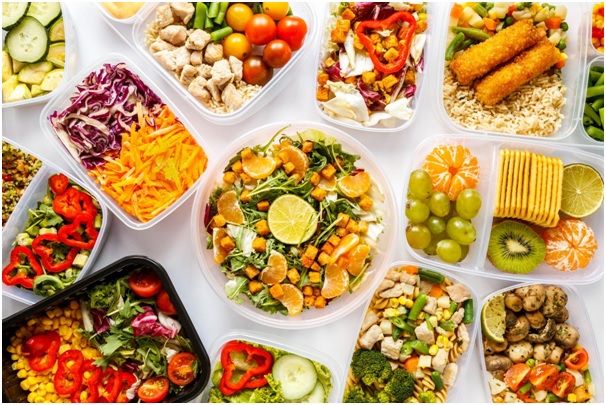Surf and Nutrition: How a Balanced Diet Enhances Performance in the Sea
The relationship between surfing and nutrition is quite intriguing, as a balanced diet can directly influence the performance of surfers in the water. By adopting healthy eating habits, surfers can enhance their energy, endurance, and recovery, essential for facing the physical and mental demands of sessions in the water.
From the importance of macronutrients, such as carbohydrates, proteins, and healthy fats, to the relevance of micronutrients, such as vitamins and minerals, each nutritional component plays a fundamental role in the preparation and performance of surfers.
Exploring Nutrition to Maximize Performance and Recovery
Following a balanced diet tailored to the nutritional needs of surfers is crucial for enhancing performance in the sea and promoting overall health. Below are some essential tips and information:
Carbohydrates: The Fundamental Energy
Carbohydrates play a crucial role in a surfer’s diet, providing the necessary energy to tackle long sessions in the sea. Surfers should opt for complex carbohydrates such as whole grains, brown rice, sweet potatoes, and fruits, which are digested slowly, providing sustained energy over time. Avoiding foods rich in simple sugars is important as they can cause energy spikes followed by abrupt drops, negatively affecting performance.
Proteins: Muscle Reconstruction and Recovery
Proteins are essential for muscle recovery after an intense surfing session. Including lean sources of protein in the diet such as fish, chicken, eggs, tofu, and legumes is crucial. These foods help repair damaged muscle tissues during surfing, promoting quick and effective recovery. Consuming sufficient proteins is also fundamental for the development and maintenance of muscle mass, which can improve overall performance in surfing.
Healthy Fats: Nutrition for the Brain and Joints
Healthy fats are important for brain and joint health and maintaining adequate energy levels. Prioritizing sources of unsaturated fats such as avocado, nuts, seeds, and fatty fish, which are rich in omega-3 fatty acids, is recommended. These nutrients have anti-inflammatory properties and can help reduce the risk of injuries, as well as promote cognitive function and cardiovascular health. For surfers from Pacific Surf School, from beginners to advanced, incorporating these sources of healthy fats into their diet can be especially beneficial, helping them keep their minds sharp and bodies agile during classes and surf sessions.
Hydration: Always Stay Hydrated
Staying properly hydrated is essential for surfing performance. Dehydration can lead to fatigue, muscle cramps, and reduced concentration, impairing your ability to surf efficiently. Drinking water regularly throughout the day and carrying a reusable water bottle to the beach is essential. During prolonged surf sessions, also consider isotonic drinks to replenish electrolytes lost through sweat.
Vitamins and Minerals: Essential Nutritional Support
Ensuring a variety of vitamins and minerals in the diet is important to support overall health and athletic performance. Colorful fruits and vegetables are excellent sources of antioxidant vitamins such as vitamin C and vitamin E, which help combat exercise-induced oxidative stress. Additionally, minerals such as calcium, magnesium, and zinc are important for bone, muscle, and immune health. Consider supplementation only if necessary and under the guidance of a healthcare professional.
Pre and Post-Surf Meals: Timing and Composition
Carefully planning pre and post-surf meals is crucial to ensure sufficient energy to tackle the waves and good recovery afterward. Before surfing, opt for a light meal rich in easily digestible carbohydrates such as a banana with oatmeal or a whole-grain sandwich with chicken and avocado. After surfing, focus on foods that provide proteins and carbohydrates to aid in muscle recovery, such as a protein shake with fruits or a balanced meal of grilled fish, brown rice, and vegetables. It’s worth noting that while protein shakes are an excellent source of protein for muscle repair, some individuals may experience constipation as a side effect, especially if they’re not consuming enough fiber-rich foods. Balancing protein shakes with a diet rich in fruits, vegetables, and whole grains can help alleviate this issue. So, can protein shakes cause constipation? For some, yes, but it’s often manageable with a well-rounded diet.
Healthy Snacks for Long-lasting Energy
Keeping healthy snacks on hand can be crucial for sustaining energy during long sessions in the sea. Opt for portable and nutrient-rich options such as whole grain cereal bars, mixed nuts, fresh or dried fruits, and light sandwiches. These foods provide carbohydrates for immediate energy, along with fiber, proteins, and healthy fats to keep you satisfied and sustained throughout the day of surfing.
Avoid Excess Caffeine and Alcohol
While caffeine can offer a temporary energy boost, consuming it in excess can lead to dehydration and negatively affect sleep and muscle recovery. Similarly, excessive alcohol consumption can impair balance and coordination, compromising safety and performance in surfing. Limiting caffeine and alcohol intake and prioritizing adequate hydration with water and isotonic drinks during and after surf sessions is important.
Consult a Sports Nutritionist
Consulting a sports nutritionist is a crucial step in optimizing diet and performance in surfing. A qualified professional can provide personalized guidance based on individual needs, goals, and training routines. They can help create a specific meal plan tailored to the demands of surfing, ensuring you are getting all the necessary nutrients to improve performance, accelerate recovery, and reduce the risk of injuries. Additionally, a nutritionist can offer strategies to address specific issues such as food intolerances, dietary restrictions, and appropriate supplementation.
Read More: The Top 3 Reasons to Hire a Team of Professional Developers to Work on Your Idea foran App

